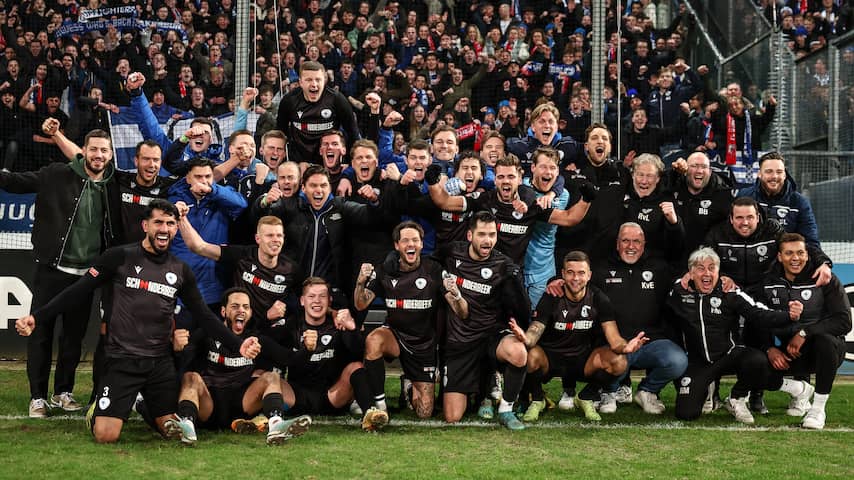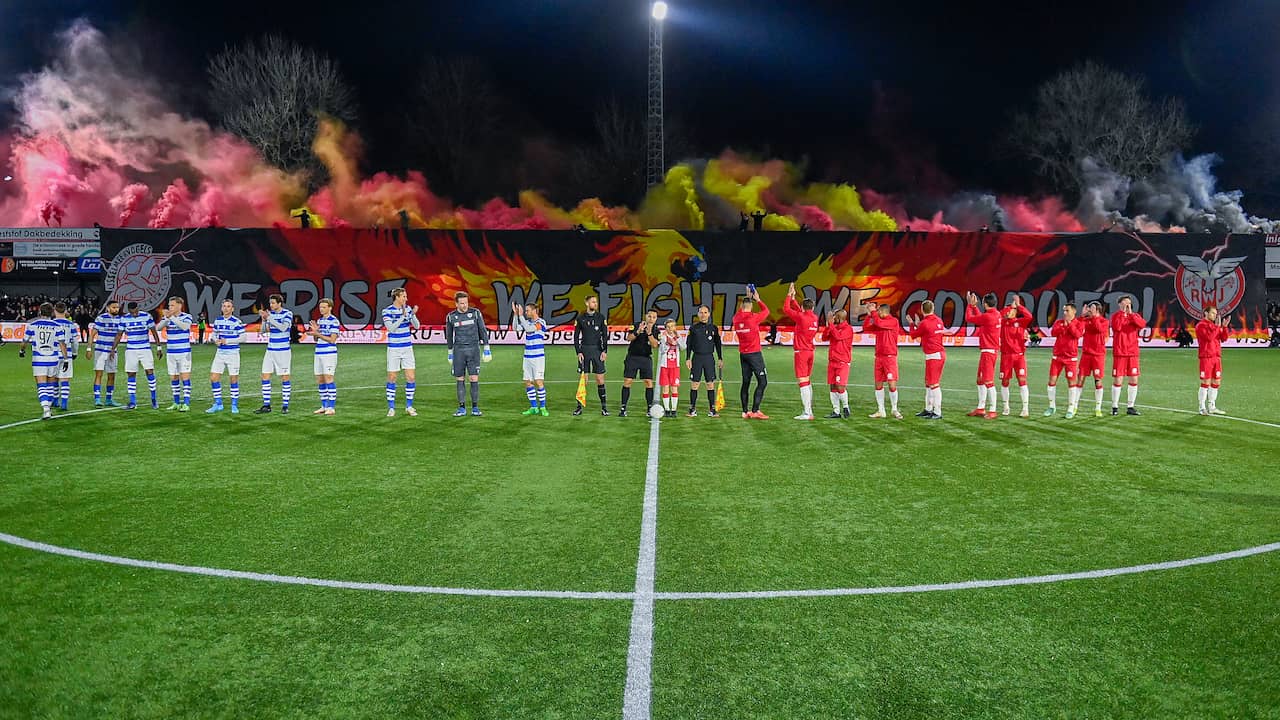A small village on the Eemmeer delivered the two biggest stunts in the KNVB cup tournament. After IJsselmeervogels in 1975, it is now the turn of the blue neighbor SV Spakenburg. What is the secret of Bunschoten-Spakenburg, which has only 22,000 inhabitants? Time for a visit in the run-up to the semi-final between SV Spakenburg and PSV.
Wat betekent voetbal voor een Spakenburger? Tijmen Beekhuis, supporter, oud-speler en voormalig secretaris van SV Spakenburg, hoeft niet lang na te denken aan de keukentafel. “Voetbal is een tweede way of life voor heel veel mensen”, zegt hij onder het genot van een Spakenburgs hart, een traditionele koek uit het dorp.
“Je gezin en gezondheid zijn natuurlijk het belangrijkste, maar sommigen vinden voetbal al belangrijker dan hun werk.” Treffend: zijn vrouw Carolyn zegt gedag omdat ze bij een wedstrijd van haar zoon Jauke in Genemuiden gaat kijken. Hij keept voor VV Eemdijk, de derde club van het dorp. In het gezin-Beekhuis, met twee voetballende zonen, gaat bijna geen zaterdag zonder voetbal voorbij.
Krijg een melding bij nieuwe berichten
The village of Spakenburg breathes football. If you drive down the main road through the village after the Bunschoten-Spakenburg exit on the A1, you will see an impressive amateur complex with two clubs looming. To the left of Sportpark De Westmaat is IJsselmeervogels, popularly known as ‘De Rooien’. The ‘De Blauwen’ play on the right: SV Spakenburg.
The rivalry between them is great. An electricity house on the club boundary is colored red and blue. The two clubs have been at the top of amateur football for decades. Every year they play against each other in the Second Division. The Spakenburg derby invariably attracts eight thousand spectators, including many tourists, and is regarded as the largest amateur derby in the world.
How is it possible that a village with only 22,000 inhabitants produces two such great amateur clubs, with numerous titles and two historic cup adventures on the roll of honor? The answer lies in Museum Spakenburg, in the classic harbor of the village center, where the commercial spirit has been haunting for centuries.
Village lives on fish and cake
Museum director Arie ter Beek gives a tour of the village’s treasury one day in March. The collection with more than seven thousand pieces illustrates the history of Bunschoten-Spakenburg. Dolls in traditional costume, paintings of centuries-old botters at sea and machines for fish processing pass by.
Fishermen from Bunschoten founded the village of Spakenburg on the coast of the Zuiderzee in the Middle Ages so that they were right at sea. When they caught more fish than was needed by the local population, they crossed the country with a basket on their back, as far as Arnhem, Nijmegen and Tiel.
This created a trade that would continue for centuries. “You could only go into fishing, there was not much else,” says Ter Beek. “Even in storms, rain and cold they went to sea. They had to, otherwise they would have nothing.”
When the fishing industry declined due to the closure of the Zuiderzee, Spakenburgers switched to the processing of fish and bread, biscuits and wet cake came into the picture more emphatically. Workers worked long hours in the factories.
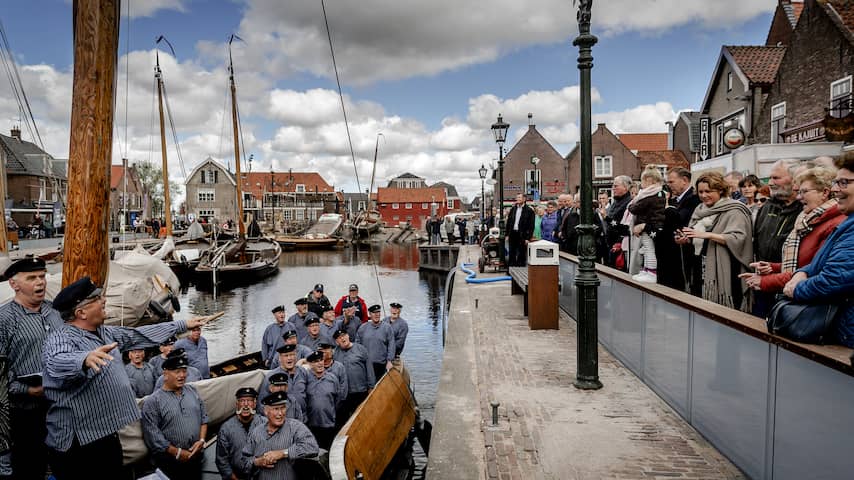
Sleeves are rolled up, but not on Sundays
Spakenburg meanwhile fell under the spell of football. Fishmongers founded NAS (Na Arbeid Sport) in 1932, the predecessor of IJsselmeervogels. A year before that, SV Spakenburg saw the light of day under the name Stormvogels. ‘De Blauwen’ mainly became the club of the farmers and clerks, and IJsselmeervogels of the fishermen.
Football was a distraction from the hard life. Ter Beek: “It was hard work in the factory in the morning and chasing the ball in the evening.” The working mentality took the players to the field. If something had to be done, the sleeves were rolled up.
Only one condition applies in Protestant Bunschoten-Spakenburg, one of the most religious municipalities in the Netherlands: playing on Sundays is prohibited. The statutes of SV Spakenburg and IJsselmeervogels clearly state that the clubs do not play Sunday football.
The two greatest footballers ever from the village gained national fame for their faith. Wout Heinen had to promise his mother on her deathbed in 1959 that he would never play football on Sundays again. And so it happened for the former striker of SV Spakenburg. Jaan de Graaf moved from IJsselmeervogels to the pros of AZ’67 in 1978 on the condition that he did not have to play on Sunday.

Race between ‘Red’ and ‘Blue’
The performance drive and commercial spirit from the village also spread to the fields at De Westmaat. SV Spakenburg and IJsselmeervogels both wanted to become the best amateur clubs in the Netherlands. A neighbor dispute ensued. “We are constantly looking at each other”, admits ‘Blue’ Beekhuis. “It’s kind of a race.”
When IJsselmeervogels built a new sports hall at the main field, SV Spakenburg came up with an even larger sports hall on its own complex. And so it happened with the grandstand, the sky boxes, the light poles and the meter-sized digital scoreboard.
The clubs also want to outdo each other in the hunt for the best amateur players. Because they haven’t come from the village for years, they go all over the country. Thanks to the contributions of numerous sponsors, they both have a war chest of hundreds of thousands of euros for the first selection.
A typical Spakenburg phenomenon, says Ter Beek. “If the neighbor has something new, then he should have it too. It’s prestige. We like to show off. That used to happen with the traditional costume. Then you could show that you had an expensive tight. I even had a neighbor who had the vacuumed stones in his yard.”
Erelijst IJsselmeervogels en SV Spakenburg
IJsselmeervogels (1932)
- Afdelingstitels: 33
- Landstitels bij zaterdagamateurs: 16
- Algehele amateurtitels: 7
SV Spakenburg (1931)
- Afdelingstitels: 15
- Landstitels bij zaterdagamateurs: 7
- Algehele amateurtitels: 2
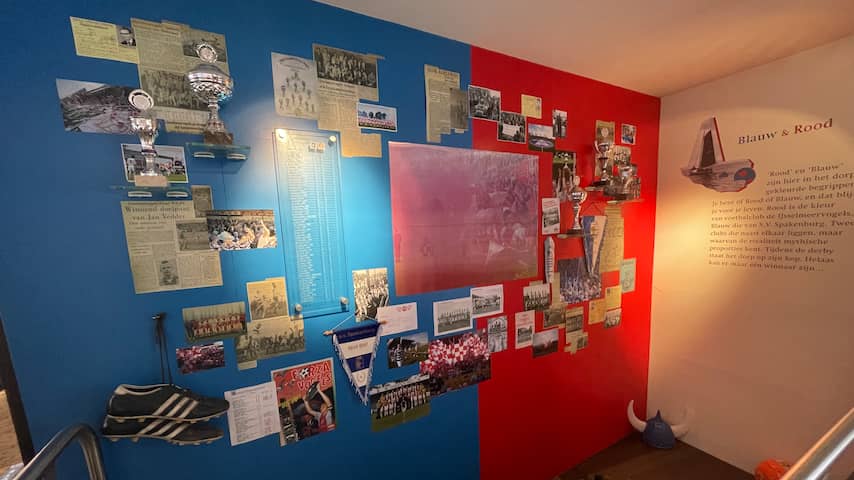
The Ajax and Feyenoord of the village
IJsselmeervogels outclassed SV Spakenburg in the village and became the amateur club of the country for decades. The highlight was the cup adventure in the 1974/1975 season, when amateurs who trained twice a week at the expense of AZ’67 reached the semi-finals of the cup.
The honors list of SV Spakenburg is in stark contrast, although IJsselmeervogels currently has to wait longer for a title at the highest amateur level than its blue neighbor (2014 to 2011). SV Spakenburg is a bit like Feyenoord, says Beekhuis.
“Every year we have a good selection and we say that we will compete for the titles, but that does not happen. We are used to dealing with disappointments. As a fan of SV Spakenburg you have to have a very thick elephant skin.”
A different character than IJsselmeervogels, which as the ‘Ajax of amateur football’ is currently fighting against relegation from the Second Division. Beekhuis: “They think they will make it, even if they are in bad shape.”
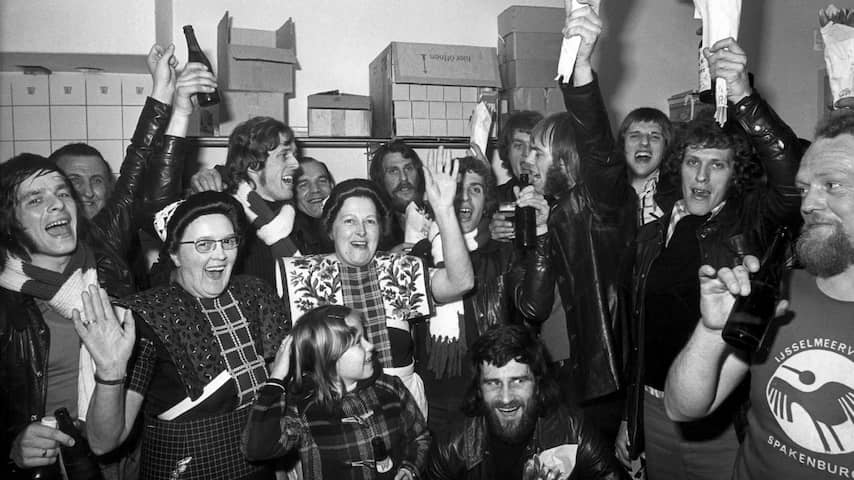
‘It’s not hate, it’s gloating’
The rivalry in the village is not as rough as between Ajax and Feyenoord, says Beekhuis. In his view, the mutual struggle is healthy, even though the mayor prohibits alcohol consumption on the day of the derby to prevent riots.
Beekhuis is also a member of the sponsor group of IJsselmeervogels with his insurance office. His uncle was even chairman of the ‘Rooien’. In several Spakenburg families the father is for ‘Blue’ and the mother for ‘Red’ (or vice versa).
Beekhuis: “Every Spakenburg supporter hopes that Spakenburg wins and IJsselmeervogels loses. The other way around is also true. But that does not mean that you have to beat each other’s brains or don’t like each other. In our village you are soon a colleague, family or friends of each other. I don’t hate IJsselmeer birds either. It’s not hate, but gloating.”
The derby boosts the cash of both clubs with 150,000 euros. Merger plans therefore rarely arise. At the beginning of last decade there was still the idea to bring the two clubs together on a vacant lot near the highway, under the project name ‘San Siro on the A1’. The plan went into the trash just as quickly as it was made up. Beekhuis: “We can’t do without each other.”
According to Beekhuis, the media made it bigger than it really was in the village, according to Beekhuis. Numerous ‘Rooien’ were present at the historic quarter final against FC Utrecht, which SV Spakenburg won 1-4 last month.
The biggest gain: just like 48 years ago, Bunschoten-Spakenburg is back on the map. And all thanks to SV Spakenburg and IJsselmeervogels, who push each other to great heights with the working-class mentality from the former fishing village.
